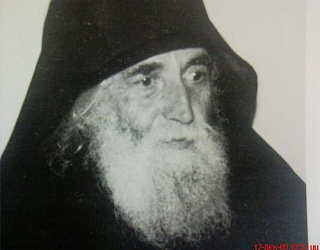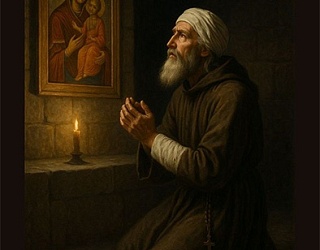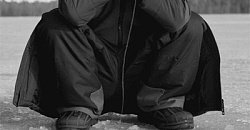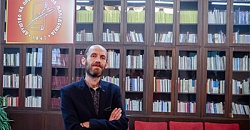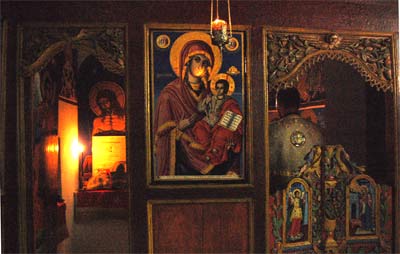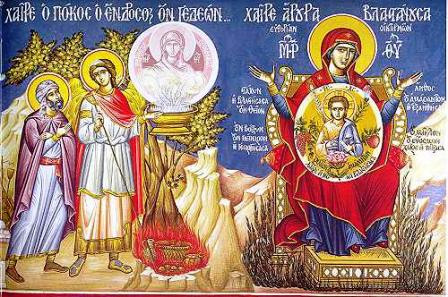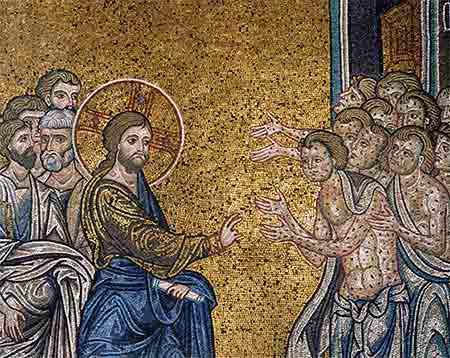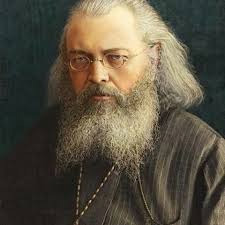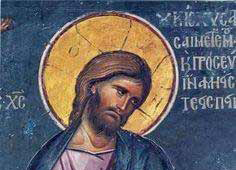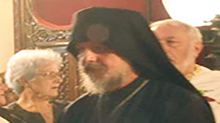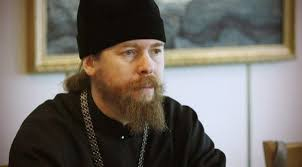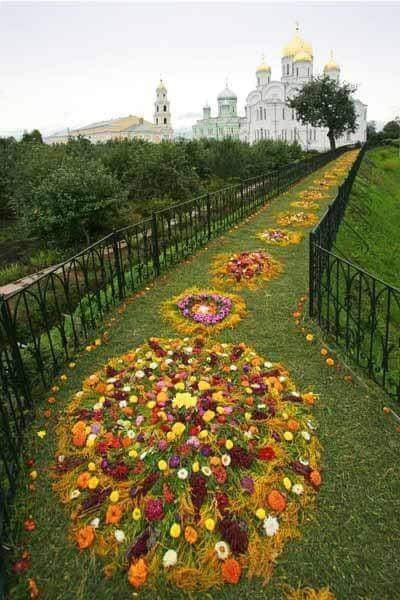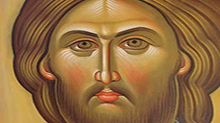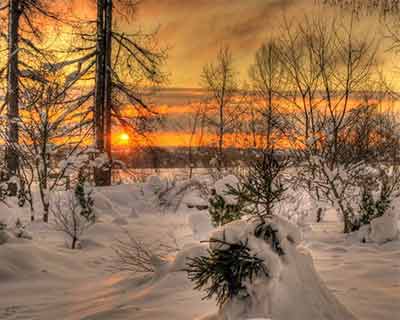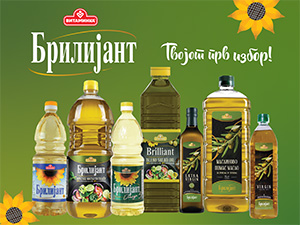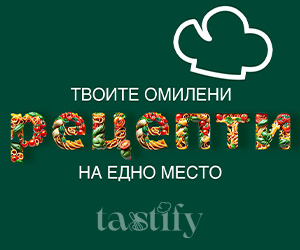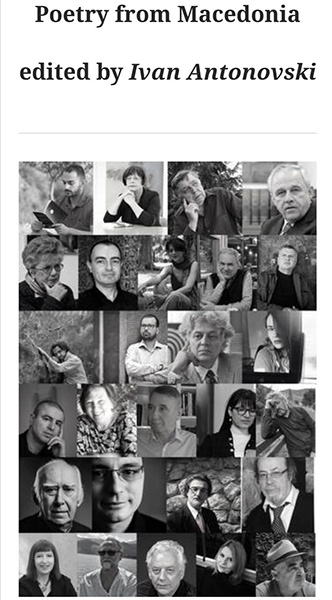
Денов почнува со убава вест за македонската книжевност и култура. Со убава вест за Македонија.
Реномираното меѓународно списание за поезија „Версвил“, својот најнов број во целост го посвети на современото македонско поетско творештво. Изданието е насловено „ПОЕЗИЈА ОД МАКЕДОНИЈА“ и „Версвил“ го објави во пресрет на Struga Poetry Evenings / Струшки вечери на поезијата (СВП).
Ми причинува огромна чест што на покана на меѓународната редакција на списанието упатена минатата година, имав можност да бидам уредник на ова издание. Се надевам дека успеав да одговорам на задачата и дека македонската поезија и Македонија, уште еднаш достоинствено се претставени пред светот.
POETRY FROM MACEDONIA (ISSUE XXXV August 2023): http://www.verseville.org/issue-xxxv-august-2023.html
Автор во фокусот: Vlada Urosevic, добитник на Златниот венец на СВП за 2023 година
Есеј: Vladimir Martinovski
Поезија од македонски поети со активен опус, кои имаат значајни творечки резултати и во 21. век: Михаил Ренџов, Гордана Михаилова-Бошнакоска, Ефтим Клетников, Санде Стојчевски, Risto Lazarov, Vele Smilevski, Rade Siljan, Katica Kulavkova, Весна Ацевска, Зоран Анчевски, Branko Cvetkoski, Иван Џепароски, Sllave Gjorgjo Димоски, Братислав Ташковски, Јовица Ивановски, Violeta Tancheva-Zlateva, Lidija Dimkovska, Никола Маџиров, Jovica Tasevski Eternijan, Nikolina Andova Shopova, Julijana Velichkovska, Ѓоко Здравески, Andrej Al-Asadi и Iva Damjanovski.
Последниве години, „Версвил“ важи за едно од најрепрезентативните поетски списанија со меѓународна редакција. Од неговото основање во 2008 година наваму, тематски броеви се објавени само за француската, американската, австралиската, ирската, холандската, индиската, турската, унгарската и украинската современа поезија, по што следи објавата и на овој број посветен на македонската поетска реч. Зад објавените преводи и препеви се потписите на над 25 преведувачи.
Искрена благодарност до меѓународната редакција предводена од истакнатиот индиски поет Sonnet Mondal, која има соработници од целиот свет, за тоа што одлучи еден од двата броја на „Версвил“ во 2023 година во целост да е посветен на современата македонска поезија (активни опуси).
Но, благодарност и до сите кои остварија свој влог во „ПОЕЗИЈА ОД МАКЕДОНИЈА“, вклучително и до авторите и преведувачите, како и до Kalina Maleska и Nikola Gjelincheski, кои се заложија за професионалното исчитување на дел од содржините на англиски јазик.
Македонската поетска реч и натаму нека допира до сите меридијани!
И преку овој број на „Версвил“...
фб Ivan Antonovski
Vladimir Martinovski
oSpdenrsottgsauha3 7fau5 3t04c5t9ua7 510:Aiait16108652iu1ia1 ·
Едно од најволшебните летни изненадувања се средбите со светулките. Во најновиот број на индиското одлично списание Verseville, број исцело посветен на македонската поезија, а приреден од страна на Ivan Antonovski, денес излезе и еден мој есеј за средбите со светулките во песните на Матеја Матевски и Кобајаши Иса. Огромна благодарност за Иван Антоновски, Sonnet Mondal и Bela Gligorova!
FIREFLIES MEETING IN THE POEMS OF MATEJA MATEVSKI AND KOBAYASHI ISSA
by Vladimir Martinovski
Oh you who exist only if darkness exists
Child of the dark of silence
Mateja Matevski
Don’t go Firefly!
Even at night Kyoto
is noisy!
Kobayashi Issa
1.
In all meridians and timelines, encountering a firefly is seen as an epiphany, or to say the least, an uncommon experience. Rarely is someone left indifferent when faced with the otherworldly aloof light emanating from this tiny bug. Some even reach out, eager to capture the firefly, as it lights up their palms. Some – such as for example, the poets Kobayashi Issa (1763-1827) and Mateja Matevski (1929-2018) – reach out, eager to eternalize their encounters with the fireflies through their poetic dictum.
Though working in/through two distant literary and cultural environments, and working with distinct poetic and stylistic orientations (the former, reaching the zenith of traditional Japanese haiku poetry during the Tokugawa period, harbingering the modernity of the Meiji period, while the latter, acting as key protagonist in championing several modernist tendencies in contemporary Macedonian poetry of the second half of the 20th century), the two poets, among other things, are united through the topos of the firefly: in the corpus consisting of over a thousand haiku poems dedicated to insects (around 150 on the subject of mosquitoes, over 100 on fleas, even 90 each on flies and crickets), Kobayashi Issa dedicated over 230 poems to fireflies, whilst Mateja Matevski, in his collection Circle (1977), had dedicated one of the most impressive lyrical cycles in the entire contemporary Macedonian poetry to the very same.
Encounters with fireflies are rare and always brief, as found in a haiku poem by a contemporary of Issa’s, Uejima Onitsura (1661-1738): “Here!”, we cry out/ while the firefly/ has gone already. Thus, in different traditions, the firefly has been referenced as a symbol of beauty’s fleeting and fragile nature. The aloofness of beauty when chancing upon fireflies has been suggested by Kobayashi Issa’s verses: the first firefly…/ but he got away and I…/ air in my fingers. On the other hand, in Mateja Matevski’s nocturnal cycle – “The Flight of the Firefly”, “Fireflies”, “Seeking the Firefly”, “The Birth of the Firefly”, “The Appearance of the Firefly”, “The Night of the Firefly”, “The Paths of the Firefly”, “The Time of the Firefly”, “The Power of the Firefly”, “Discovering the Firefly”, “The Death of the Firefly” – namely, eleven poems that represent and depict fireflies in constant motion: coming and going, revealing themselves and hiding away, being born and disappearing: Their dance begins like a handful of burning ears/ swaying in the wind that fly and tumble (“The Appearance of the Firefly”).
2.
Through Matevski’s suggestive poetic images, several dichotomies are referenced simultaneously (light-darkness, coming-departure, moment-eternity, life-death), characteristic for the rhythmic coming and going of light. Hence, Matevski’s poetic dictum, not at all by accident, plays with a musical element (the term syncopation), which the poet uses to suggest the rhythmic appearance and disappearance of light, such as for example in the poem “Fireflies”: Only the night knew the meaning/ of drowsy lights/ Their syncopated breath gave life/to the fleeting prints of darkness. Issa, on the other hand, writes the following: A giant firefly:/ that way, this way, that way, this –/ and it passes by.
The poetic images of the sudden comings and goings of the fireflies in Mateja Matevski’s lyric poetry thematize the inseparable bond between light and darkness, as can be found in the starting verse from the poem “The Power of the Firefly”: Through the dark bulk of silence/rises gleams and is gone – /the first firefly. The poetic image in the poem “Seeking the Firefly” faces us with the paradox surrounding the presence and absence of light and darkness: the exact orbit of light/ which does not exist while it exists/ which is there while it is not. Matevski’s verse reminds us that light can be blinding (when with your light you sow even darker darkness); that darkness, as (its) contrast, is a necessary precondition for light’s manifestation, as stated in the poem “The Birth of the Firefly” (You were created by the night’s blind darkness); but also, that [o]nly its light spoke/ of the nonexistence of sight, as the lyrical subject of the poem “The Flight of the Firefly” ascertains. When seen from a larger perspective, the theme of power, but also the fragility of beauty, as thematized by the fireflies’ cycle, can be seen in the context of another thematic interest expressed by Matevski’s poetry, and as such emphasized by one of his most dedicated critical readers, Vlada Uroshevikj: “In his poetry, Matevski offers his own version of the Macedonian (but also deeply ingrained, Mediterranean) myth about connecting beauty and death, i.e., the Dionysian act of celebrating fertility and birth and entering the underground kingdom of the dead.” (1986, 409)
Moon, plum blossoms, / this, that, / and the day goes. – reads one of Kobayashi Issa’s haikus. In Matevski’s poem “Seeking the Firefly”, the speaker notices that [n]ever had we had inside us so many hues of the rainbow, while in the poem “The Birth of the Firefly”, the firefly becomes a symbol of (…) fair love of the moment/ illuminated curiosity/ Oh fate of evanishing beauty. However, a poetic experience can turn this brief encounter with the firefly into a kind of an ‘eternity’. In Mateja Matevski’s poem “The Flight of the Firefly”, the firefly’s transformation (from a tiny insect into a celestial being) references the bond between the micro- and the macro-cosmos: And we mutely stared/at the trivial creeper/ becoming/ a star. The poet bears testimony to this wondrous transformation of something seemingly fleeting and insignificant (a creeper) into something that stands as the highest ideal of any metamorphosis (a star).
Henceforth, Georgi Stardelov convincingly emphasizes the awareness present when speaking about man’s life’s brevity, as seen through the metaphor of the firefly: “This very dialectic of light and dark is revealed through the ‘Fireflies Cycle’. In this anthological cycle, Mateja Matevski shares with us the frightening thought that light is fleeting while darkness roams eternal, i.e., that fireflies, like man, melt as sacrifice to their wings, whist man burns up his own ascent. However, the humanism behind his poetic tragedy rests on the shoulders of his poetic concept, according to which light teaches us that sight exists, and much like the firefly when dying, turn into a star, which in turn, unlike darkness, always represents lux aeterna, since light and the firefly do not begin to exist until they begin to exist, since they are there even when they are not.” (1986, 410)
Despite the fact that the former (Issa) sings through elliptical three-lined poems mostly dominated by the metonymic approach, while the latter (Matevski) voices a host of metaphors, the central bond in their approach to the image of the firefly as a poetic topos, can be found in the domain of lyrical empathy. The term empathy marks an ability to recognize and understand the feelings, emotions and thoughts of another human being; hence, it stands as an inseparable part of everyday communication practices, as well as an important spiritual condition, affecting both the creative process and the way its products – art works – are received. Can we in fact limit empathy to interpersonal relations? Proof that man can enter a state of empathy with various life forms (from insects to animals, even plants), can be found in Issa’s verse, a kind of condensed poetic ‘proof’ so to speak (for example, I am poor/ as a firefly / with no fire or in the many poetic images from Mateja Matevski’s cycle on fireflies, particularly the closing poem – “The Death of the Firefly”.
Namely, through the prism of poetic empathy, manifested in Matevski’s and Issa’s poems on fireflies, respectively, we can notice that each ‘(po)ethics’ recognizes and articulates a kind of ‘ethics’: the speakers in Matevski’s and Issa’s poems, respectively, address fireflies not only as their interlocutors, but also as someone they feel (com)passion for/with. Matevski’s lyrical subject addresses the firefly with the following words: Oh you who exist only if darkness exists/ child of the dark of silence/ (…)light of ages before my awakened eyes/ Oh magic meaning of light (“The Birth of the Firefly”). In one haiku, Issa recognizes the firefly he had seen the previous year: First firefly/ you keep coming back/ yet you know me not. In another haiku, from the onset of the 19th century, the Japanese poet articulates his concern for the fate of the firefly in an urban setting: Don’t go Firefly!/Even at night Kyoto/is noisy. Since during the day it would be difficult to set it apart from other insects, led by his empathy, compassion and altruism, the poet exclaims: Don’t tread there! / Last night so many fireflies/ shone their way through there.
3.
However, empathy for Others, as found in the poetry of Issa and Matevski, is certainly not limited to fireflies. For example, Issa sings: In my house/ mice and fireflies/ get along. Or: don’t worry/ mother flea with your kids!/ hey, don’t worry. Or: Come over with me/ and together let’s play/ Oh, motherless sparrow. Or: The parent bee/ its honey being stolen/ buzzes here…On the other hand, in the poem “Running in front of the Fire”, Matevski writes: How to protect you/ oh tender green/from the flooding of the fire. Brimming with empathy for fireflies, but also for Mother Nature, including mankind, Kobayashi Issa’s and Mateja Matevski’s verses continue to flutter and shine like fireflies in a dark night…
Mateja Matevski’s firefly cycle sheds light on a key aspect of his poetics: a pronounced interest in landscape coupled by a nuanced (com)passion for/with various forms of existence, a sentiment in tune with the spirit of haiku poetry. This “haiku-potential” within Matevski’s lyric poetry was recognized by Nikola Madzirov. The fifth edition of the magazine Mravka (Winter 2005/2006), which among other writing, contains Octavio Paz’s (1914-1998) lyrical miniatures and haikus translated by Matevski, includes 24 haiku poems by Madzirov, created “without any formal or stylistic interventions” exactly due to Matevski’s translations. At least a part of that three-lined verse, as “recognized in” the lyricism of Mateja Matevski: Shadows on willows/ A crawling river/ An embrace; I’ve returned, again/ To this lake, lulled/ In the bosom of the hills; Dew has forsaken the necklace/ On top of the pearl’s web; The sea is scented/ Like a forgotten flower/ In soft embraces, or, The Butterfly in grass/ Sprighting after leads/For the divine.
R. H. Blyth says of Kobayashi Issa: “Issa cares for man, who resembles a weak angel; he cares for birds and animals, who like us, struggle to survive (…) Issa is the most Japanese of all haiku poets, yet despite of it or perhaps because of it, the appeal of his work is universal.” (1982, 633) This conclusion seems apt for Mateja Matevski as well, whose poetry, both in Macedonia and throughout different corners of the world, has been received as intimately personal. As the kind of poetry which nurtures and which speaks to that which the mind cannot comprehend.
References:
Blyth R. H. (1982). in: Povijestsvetskeknizevnosti 1. Zagreb: Mladost.
Chevalier, J. & Gheetbrant, A. (1993). Dictionnaire des symboles. Paris: Robert Laffont.
Higginson, J. William. 1996. The haiku Seasons – Poetry of the natural world. Tokyo, New York, London: Kodansha International.
Le Haiku et la forme breve en poésie française – Actes du Colloque du 2 décembre 1989, Ecole d'Art d'Aix-en-Provence.(1991). (Ensemble réuni par André Delteil), Publication de L'Université de Provence.
Матевски, Матеја. (1986). Поезија. Скопје: Мисла.
Stardelov, G. (1986). in: Mateja Matevski’s Poezija, Skopje: Misla.
Uroshevikj, V. (1986). in: Mateja Matevski’s Poezija. Skopje: Misla.
Translated from Macedonian by Bela Gligolova




